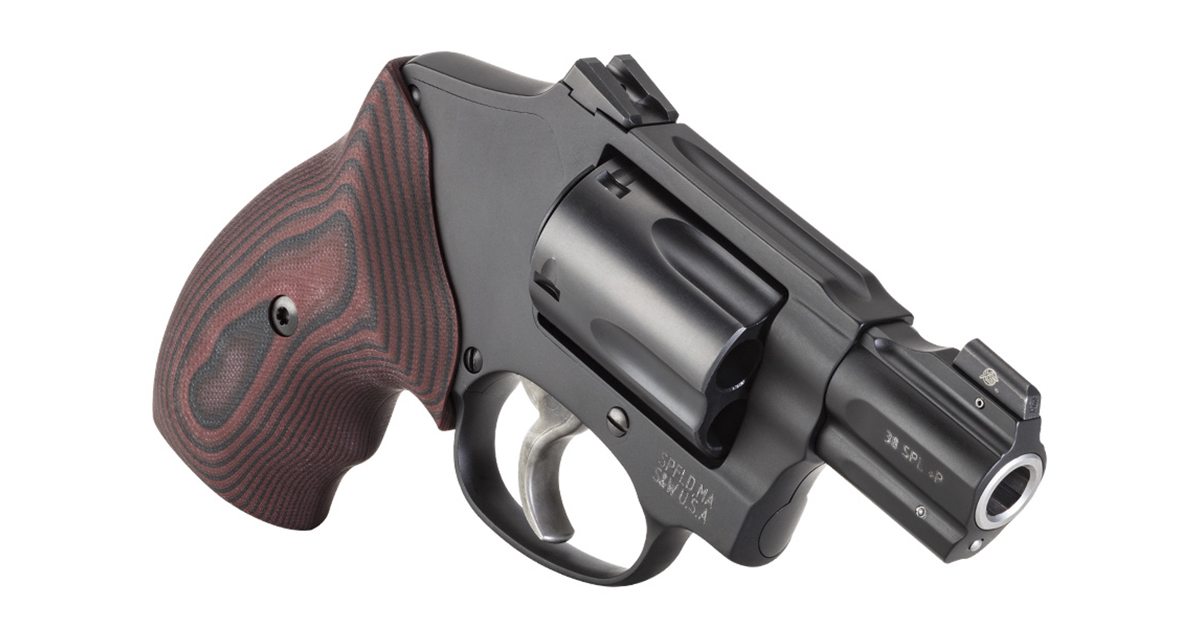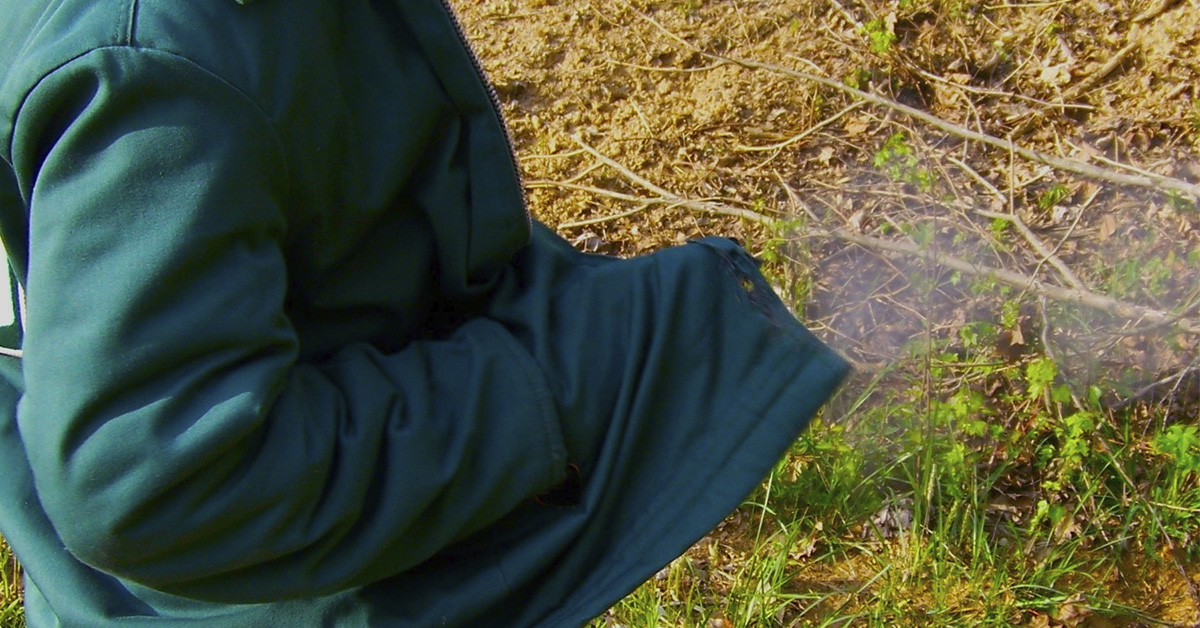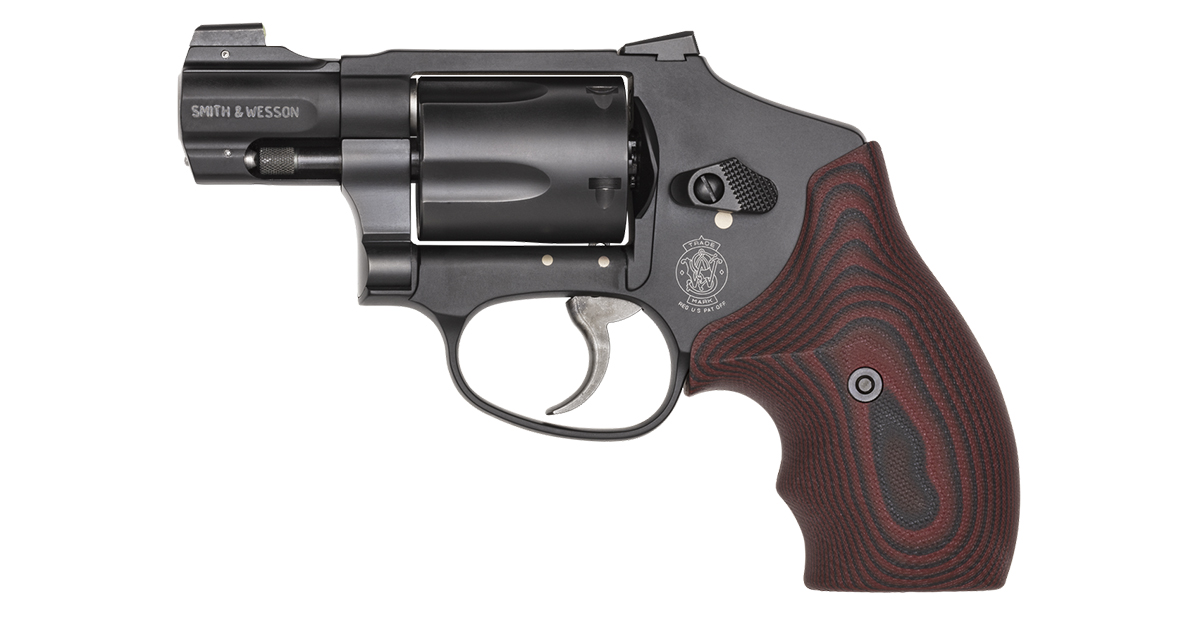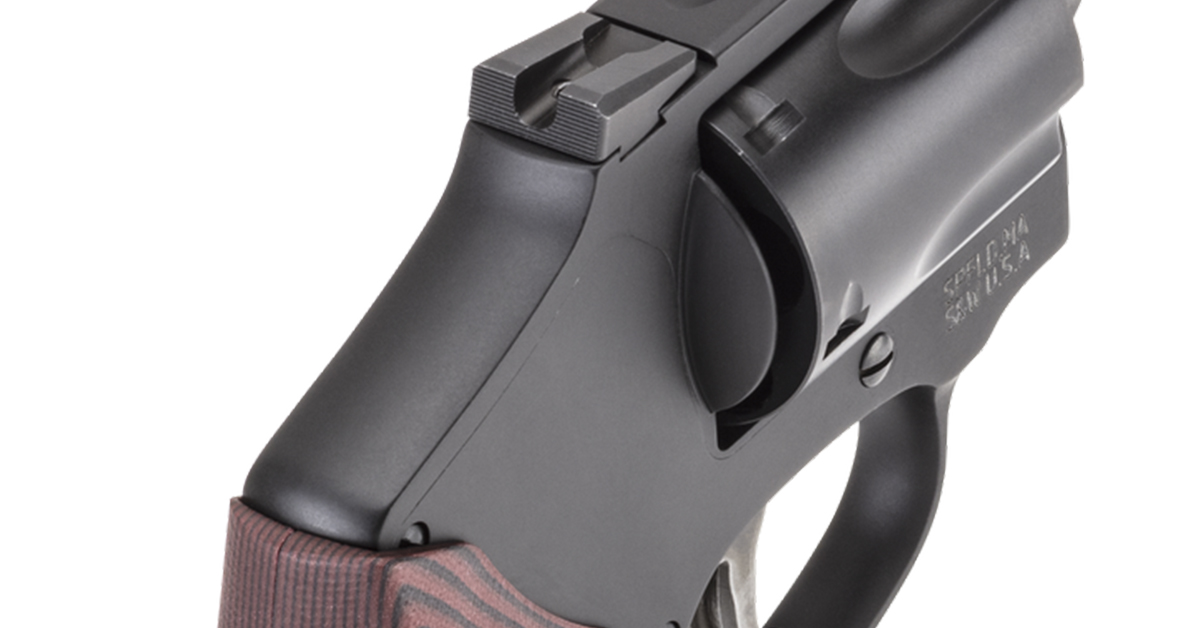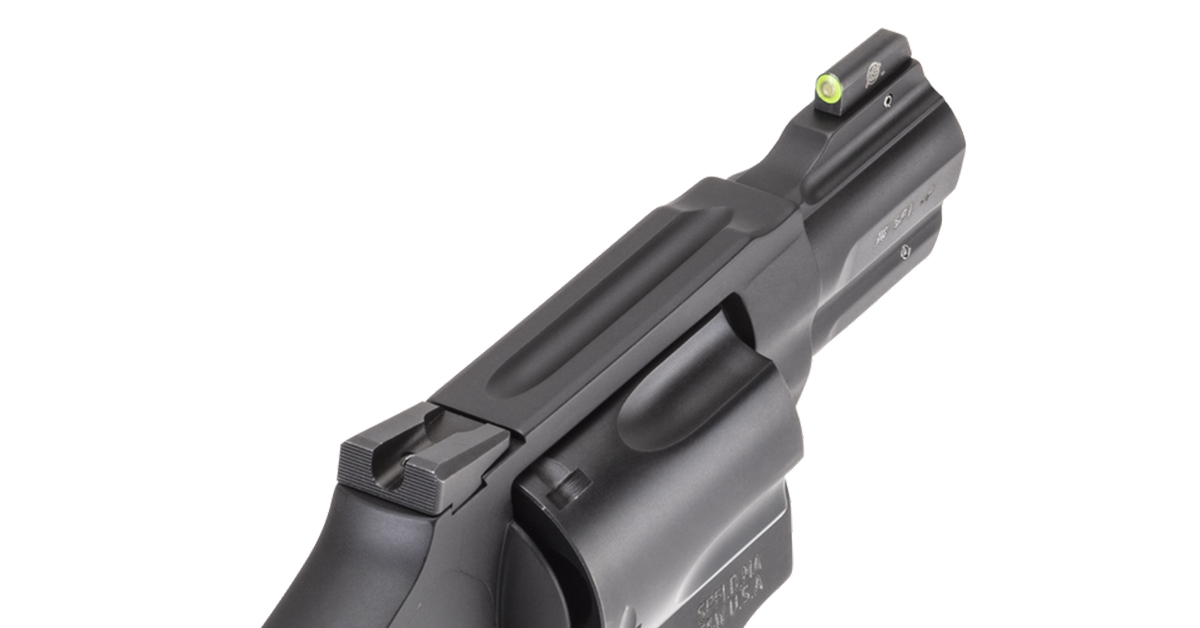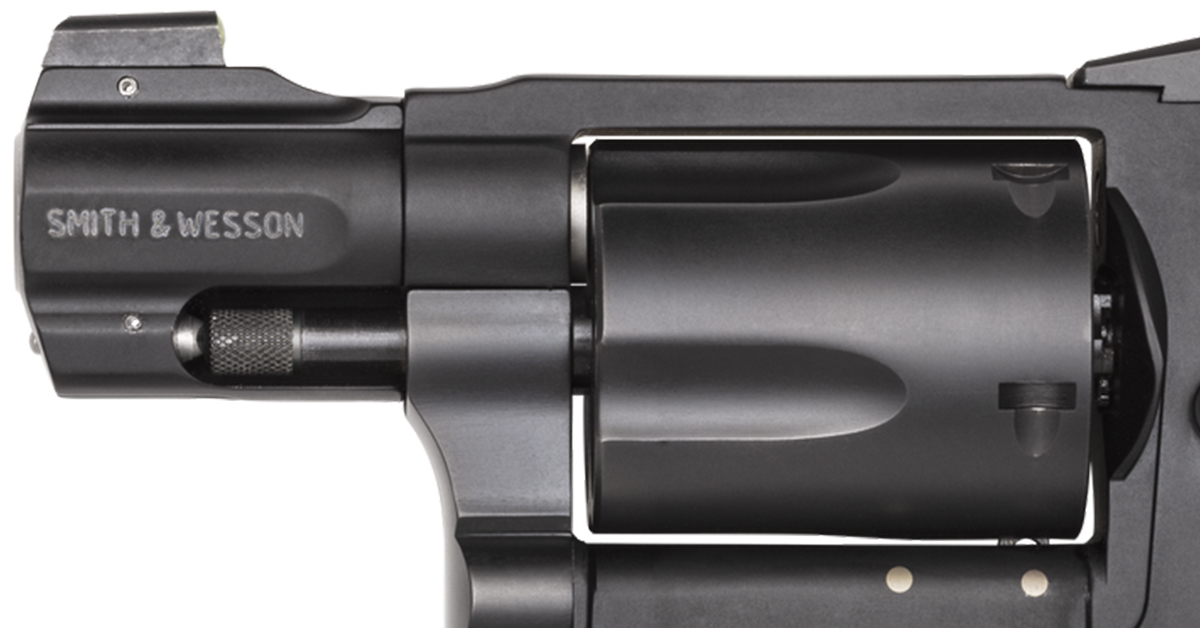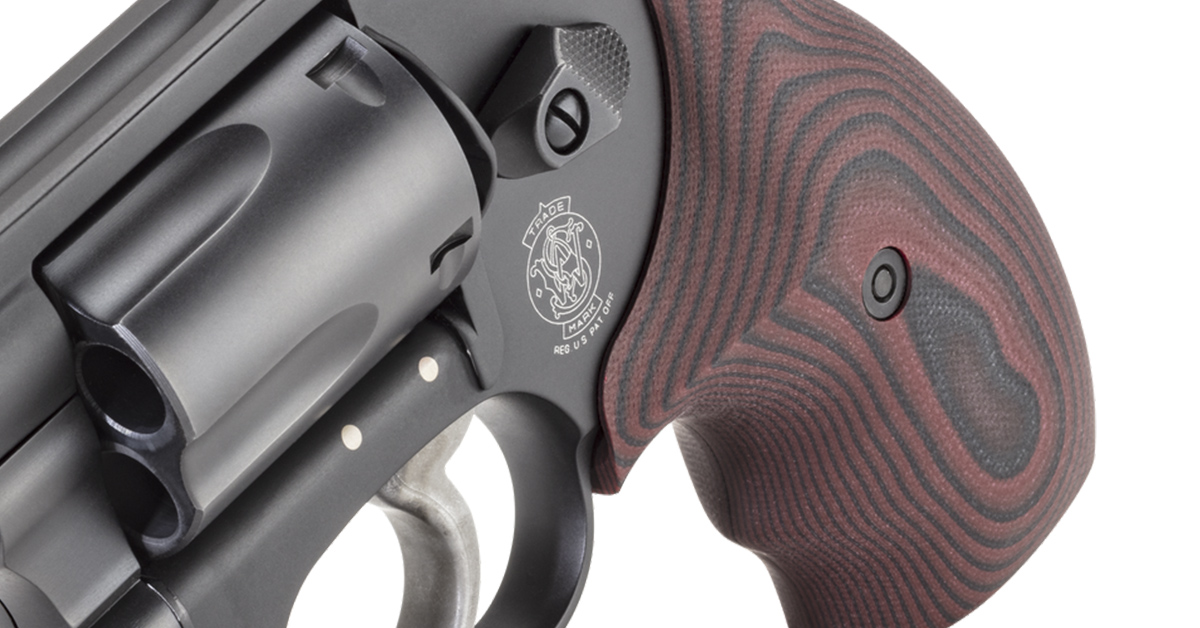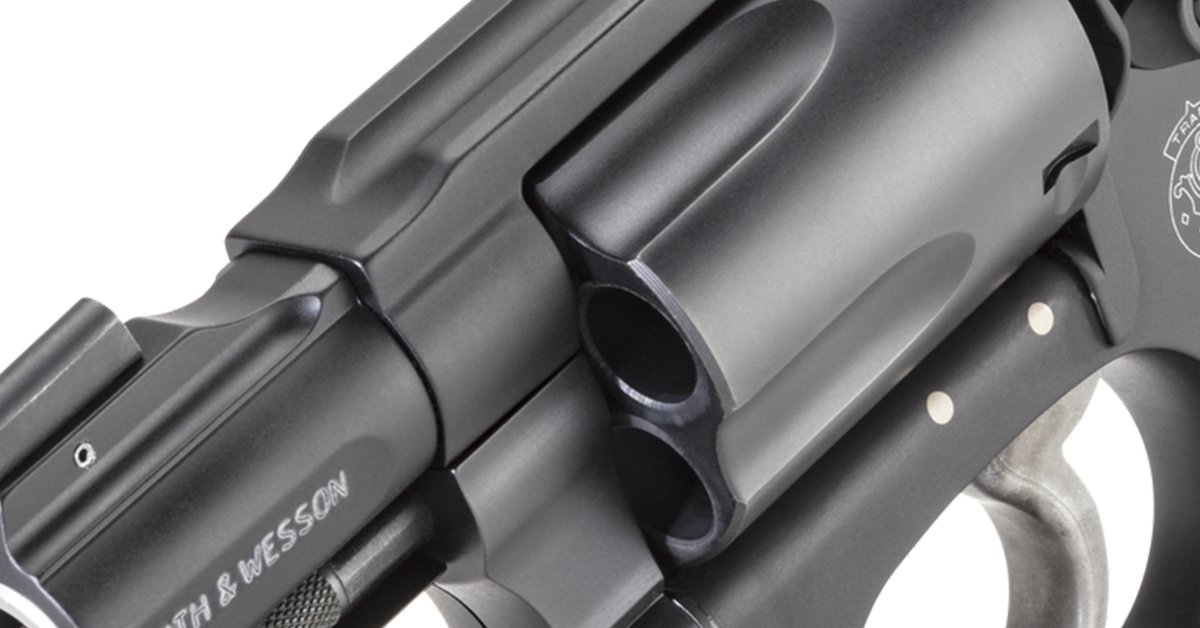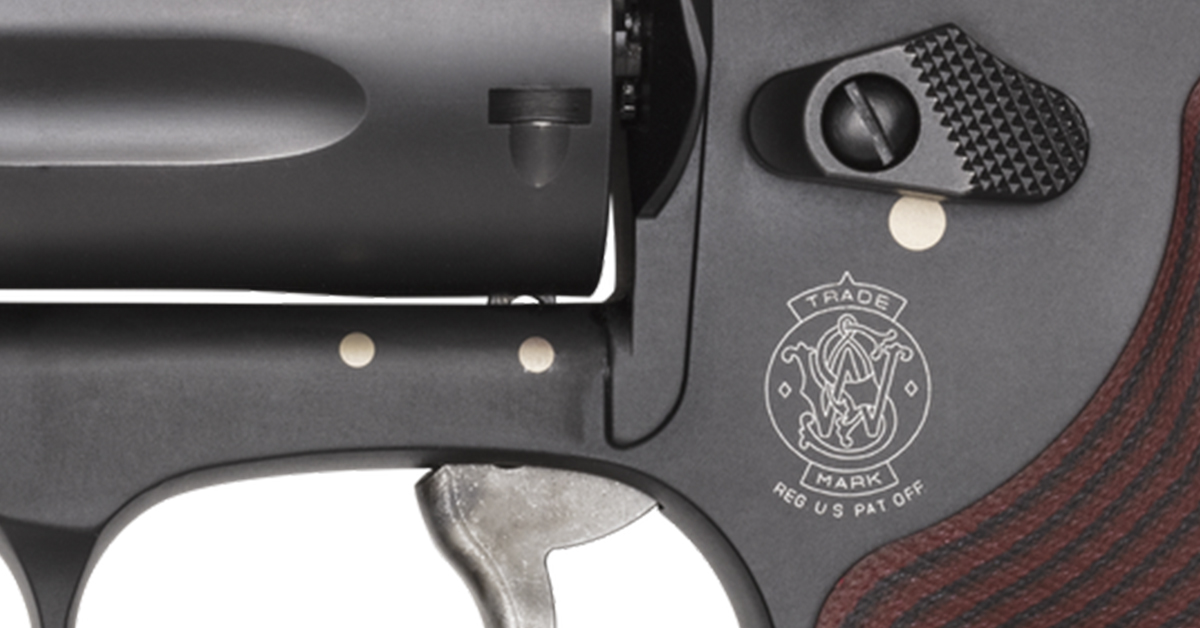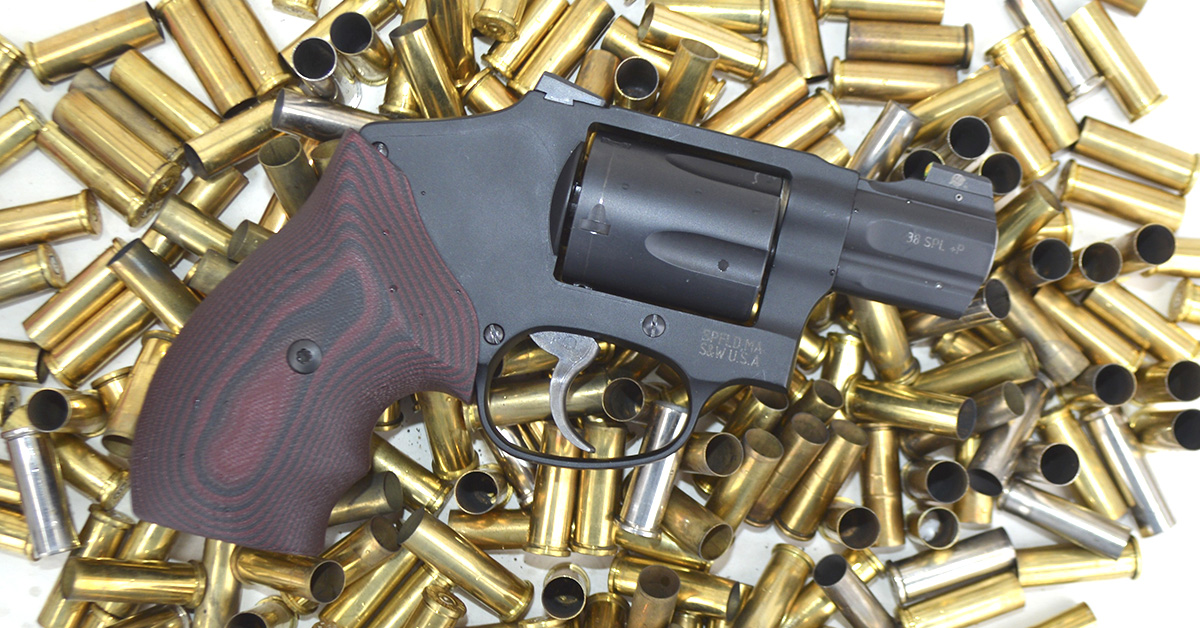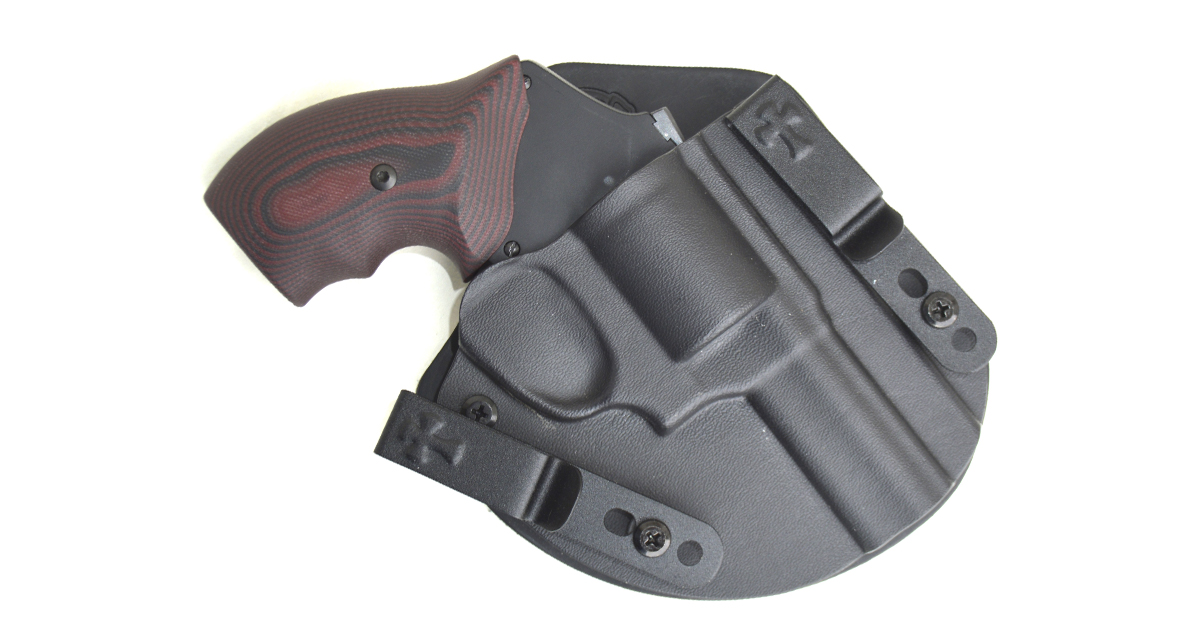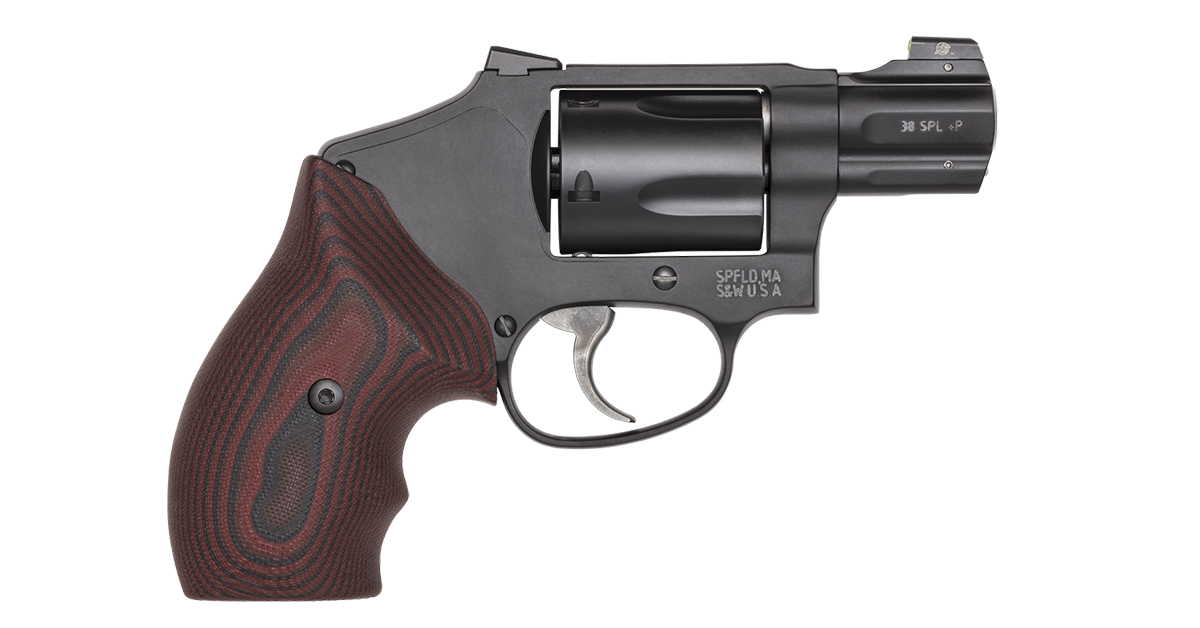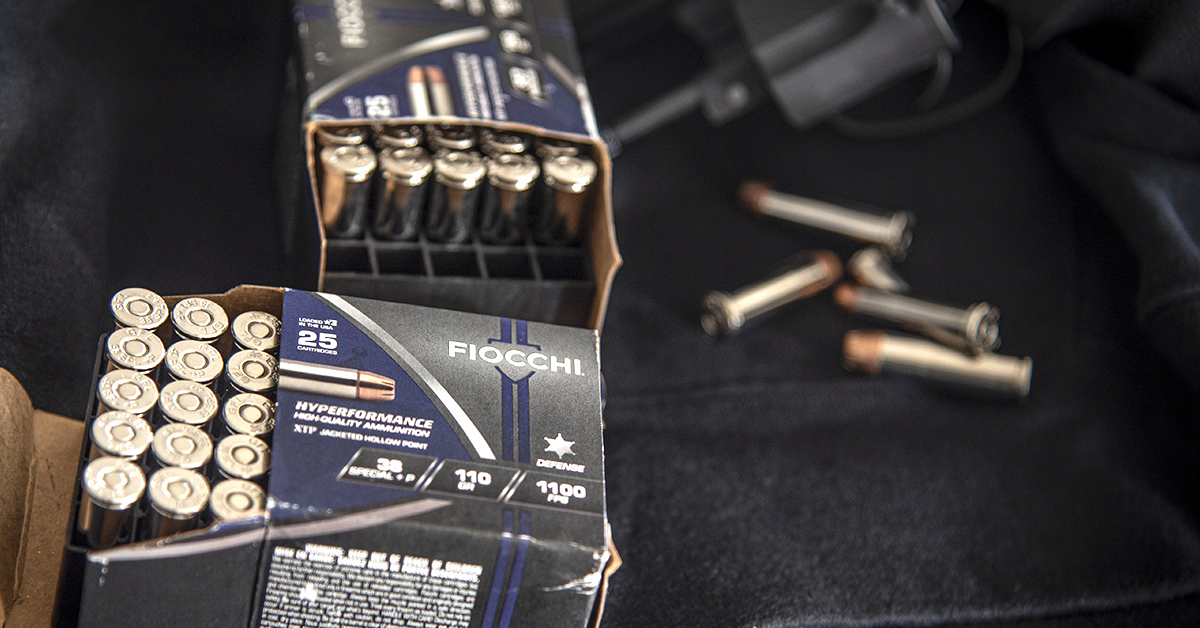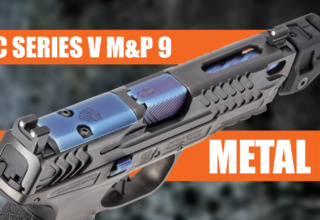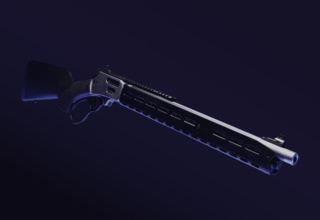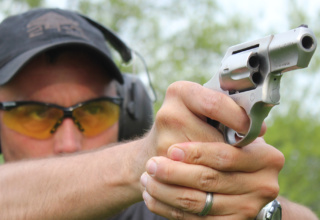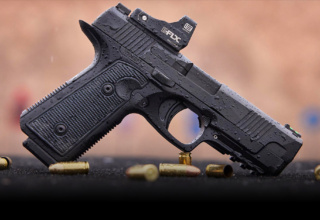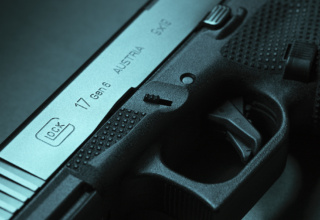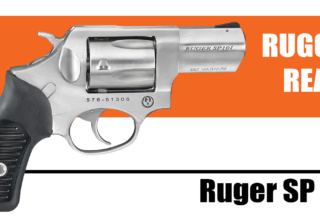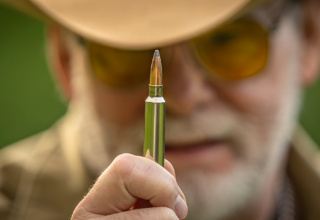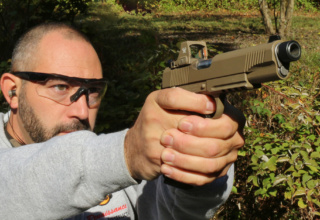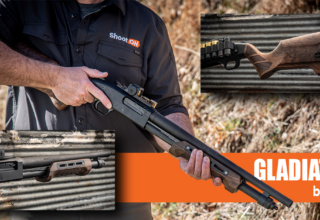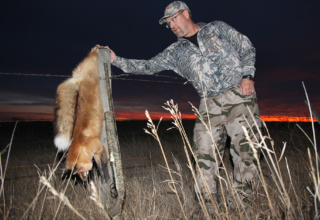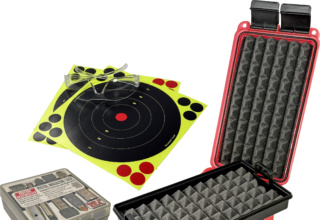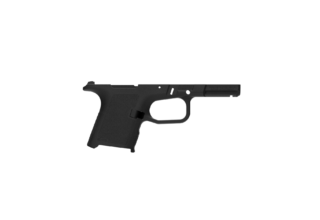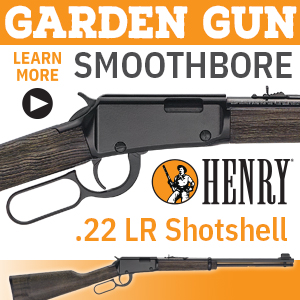Smith & Wesson continues its short-barrel revolver legacy with the Ultimate Carry 442 concealed hammer model. For a close-quarter backup gun, here’s your huckleberry.
by Bob Campbell
I have carried handguns not of my choice (issued by one agency or the other), and I have chosen my own defense guns. A type I have never been without is a good-quality .38 Special revolver with a short barrel. Nine times out of ten, the revolver has been a Smith & Wesson. We call them snubnose .38s or Chief’s Specials, although there is more to the designation than this. I don’t carry unreliable or underpowered handguns.
I could relate tales that are close to horror stories, and some of these reports would chill you to the bone. Many revolve around handguns that failed or shooters who chose a handgun with a cartridge that proved unreliable in stopping a threat. But then, the folks who missed with a full gun load never knew if their cartridge was effective!
I believe in being armed with the best possible firearm. An asymmetrical battle not in your favor is not something to look forward to. So, why a snubnose .38?
For the most part, the .38 Smith & Wesson Special has been a backup, and I still carry a lightweight .38 in this role on a daily basis. Generally, when I don’t carry a self-loader and carry a revolver, I carry two. Not paranoid at all, just well-seasoned. That said, this shooter has a lot of experience with many good .38 snubnose revolvers and I find the S&W Ultimate Carry 442 the finest revolver of the type (Airweight .38) I have tested.
Since the 442 features a short barrel, it is well-suited for retention. A gun grabber doesn’t have much leverage while you have the advantage in holding onto a well-designed grip.
The concealed carry .38 with a hidden hammer may even be fired from a jacket pocket more than once. While many authors mention this trick, they don’t tell you the rest of the story. I don’t think they have actually tried firing inside a pocket! The heat is intense as the revolver fires and may singe your knuckle hairs right off. At the range at which someone has you by the neck or is stabbing you, a few singes will not matter. As an intimate-range weapon, the revolver has the further advantage of the ability to be pressed into an opponent’s body and fired repeatedly. A semi-automatic would jam after the first shot.
I have been accused of writing “biblically,” as in, ‘in the beginning was…’ — so here we go again.
The original swing-out cylinder double-action Smith & Wesson was the Hand Ejector. This is an I-frame revolver chambered for the powder puff .32 Smith & Wesson Long cartridge. Later, a five-shot version in .38 S&W was offered. About 1950, Smith & Wesson lengthened the chamber and opened the frame window to give us the J-frame in .38 Special. The Chiefs evolved into the Model 60 stainless steel revolver and various aluminum frame revolvers.
Hidden hammer revolvers are easily the best choice for concealed carry. These handy and affordable handguns are double-action-only with a geometrically designed hidden hammer. The 442, 642, and 640 are concealed hammer revolvers and the best of the breed. The concealed hammer design makes for a smooth, snag-free presentation from concealed carry. Since we sometimes carry a handgun in deep concealment in a pocket or in an ankle holster, a snag-free profile is good. A bonus is that the high grip of these humpback-profile revolvers makes for a higher hold and less felt recoil.
The Ultimate Carry J-frame is well thought out and makes the most of a mature design. The frame is aluminum alloy, allowing light weight. This makes the Ultimate Carry easy to…well..to carry. But it is also a good-shooting gun and that is the part that took more design work. Supposedly, this revolver will revive the .32 H&R Magnum in another version. I don’t care for that pipsqueak cartridge and wish it a happy demise. Still, someone will buy it. If you don’t want .38 Special recoil, load the 148-grain target wadcutter — plenty of penetration. The wadcutter starts and finishes the wound channel at .358 inches, which no .32 H&R Magnum I have tested aspires to reaching through expansion.
So, what could be done to upgrade the J-frame? Custom gunsmiths and the Smith & Wesson Performance Center have been at it a while and offered memorable handguns from time to time. Size and weight are ideal for concealed carry and backup. The action is proven reliable.
A fly in the ointment a few years ago in Smith & Wesson revolvers was the addition of the action lock — often referred to as the “Hillary Hole.” This lock doesn’t fail in a high percentage of revolvers, but it has failed, especially in Magnum revolvers. It isn’t a myth. I have personally experienced this problem. I no longer own a revolver with this lock and never will. The Ultimate Carry 442 is manufactured without the infamous and unnecessary abomination.
A superb addition is an XS Sights front sight. Self-luminous tritium sights are a rarity on revolvers. This setup is leagues ahead of the old groove rear and ramp front sights. The rear sight is a dovetailed type. With a front sight measuring .140 inches and a rear notch at .160, you have an ideal sight picture.
The UC 442 features modern construction with a shrouded, two-piece barrel. The barrel boasts a flat profile similar to the S&W 640 Pro, S&W 642, and others. The ejector rod is nicely housed under the barrel rather than unprotected (in a departure from most J-frame revolvers). The action is smooth in operation. The J-frame had compactness and reliability, and the sights were lacking. The Ultimate Carry 442 features excellent sights.
J-frame grips needed improvement. Some feature good quality Hogue grips from the factory. A smooth set of grips, snag-free, but able to fill the hand, was needed for ultimate concealment. VZ G10 grips were chosen. I cannot think of a better choice. Oversize over-molded rubber may be more comfortable to fire, but in the overall picture of good control and snag-free presentation from carry, nothing is superior to VZ grips. They are not quite as smooth as they appear — there is some abrasion and adhesion. A .38 Special weighing in at 16 ounces is going to have recoil and you must learn to master it. VZ grips make the revolver much more controllable. There is no rapping of the thumb with heavier loads as the cylinder release does not bite the thumb and there is no heeling. Heeling is when recoil forces the muzzle up and the handle down, affecting your grip. VZ grips address every issue with poorly designed grips without “bulking up” the gun.
Attention to detail is evident in the Ultimate Carry 442. The cylinder is beveled to allow smooth holstering. The chambers are chamfered. I have not beveled a cylinder, but I have carefully filed and polished chambers. The chamfering of the Ultimate Carry chambers is well done.
When examining the UC 442, I noticed titanium pins in the action not present in my long-serving 442. The maker calls this an Endurance Package. The only J-frames I have seen with problems are those aluminum frame revolvers fired too often with +P or +P+ loads, which resulted in a cracked frame. I have seen a grand total of two cracked J-frame aluminum frames in my lifetime. One still functioned. The other had the frame stretched by four or five boxes of +P+ or Treasury Loads.
The titanium pins are a good choice, as I imagine anyone spending the money for a great revolver will fire it extensively. For what I use a snub nose .38 for — backup to a 1911 or Glock, second gun to a .357, and carried in an ankle holster, pocket holster, or good quality left-hand scabbard — the piece is ideal. Plenty of concealed carry shooters carry a snubnose .38 as a primary handgun. It isn’t something you may drop in a drawer and not practice with. But with good training and practice, the revolver is well-suited to personal defense.
Firing the Ultimate Carry
I collected a number of likely practice loads. Federal’s 158-grain RNL is an accurate low pressure loading ideal for practice and was the majority choice. This is the famous widow maker load, as in the threat isn’t stopped after being shot multiple times and your wife becomes a widow. The RNL bullet makes a small hole, and it doesn’t get any better as it penetrates. For practice, it is fine. I also collected a few of the modern 130-grain FMJ practice loads. These loads burn clean and are easily controlled. The FMJ loading doesn’t lead at all and the RNL load didn’t seem to leave any lead in the barrel (750 fps doesn’t melt much lead). Firing the UC 442 was a joy. Get the big dot on target and press the trigger to the rear. The big dot isn’t held into the rear notch but instead is set on top of the notch for the proper point of aim. The XS dot is fast…very fast on target. Get on the X and you have a hit.
I could tell you that I was firing revolvers when you were in three-cornered britches or just a gleam in Dad’s eye. It may be true, but that only means I have some experience and don’t have to practice as often with my revolvers. Use the proper technique and you will be as good or better a shot as I am in good order. I shoot too many guns, but it is my advocation. I fired rapid-fire at 5 and 7 yards. The UC 442 is a fast-handling revolver. Press the trigger to the rear, get a hit, allow the trigger to reset during recoil, get back on target. This is a responsive revolver in the hands of a trained shooter.
I stretched the firing tests to 15 yards. I slowed down but got good results. You would not be helpless at longer range with this handgun. I would not, though, count on this gun if longer shots were the likely scenario! I have learned more than I would have liked about bad things, and as a result, wound ballistics are important.
I tested several defense loads. There are a couple of standard pressure loads that offer good results without resorting to +P pressure. Among these is the Federal 110-grain Hydra Shock. Buffalo Bore offers several standard pressure loads. Another is the Hornady 110-grain Critical Defense. Results were good. There is more push back but nothing uncomfortable. Either would make a reasonable choice for personal defense. Concentrate on shot placement!
I also fired a +P loading. Recoil was greater and recovery slower. The VZ grips helped in controlling the Fiocchi 110-grain JHP +P. Basically, I could get five solid hits with standard pressure loads in the time it takes to get four hits with +P loads. Food for thought. In the foreseeable future, I will be deploying the Federal Hydra Shock Deep for its versatility in many scenarios.
The UC 442 is a good shooter, reliable, accurate enough for most uses, and, in the end, among the finest snubnose .38 Special revolvers ever manufactured.
Carrying the S&W UC 442
I had on hand a Crossbreed inside-the-waistband holster that made a good match for the Smith & Wesson UC 442. Molded for a three-inch barrel gun, it would be best to order for a two-inch revolver, but for test purposes, it was fine. The balance of speed and retention is ideal. I practiced drawing quickly and re-holstering, then drawing again. This is a good quality holster, comfortable, and concealable. I especially like how the belt clips security bite into the belt and keep the holster secure.
When it comes to the snubnose revolver, your investment in exertion pays off in principal. This isn’t a revolver to purchase and not fire often. In its role, it will serve well.
If you do choose the .32 H&R Magnum version, Buffalo Bore has introduced a 100-grain full wadcutter at 900 fps that offers good velocity and punches a deep hole. A 100-grain JHP breaks 1050 fps in a two-inch barrel — more than 100 fps faster than most 85-grain JHP loads. This makes the use of the .32 H&R Magnum within the realm of reality.
What I Like
- Reliability and fast handling are excellent. The sights are a vast improvement over most small revolvers.
What I Don’t Like
- I like the VZ grips but don’t like firing the revolver with them! I think I may try a compact set of Hogue grips.
What I Would Change
- The grips. We will see.
Compare To
- Nothing really in the category save the slightly larger Kimber K 6, to which the Smith & Wesson compares well. The Smith & Wesson Performance Center 640 Pro is a better shooter and more comfortable to fire but weighs more. The Smith & Wesson UC 442 fills a niche.
S&W UC 442 Specifications
- Chamber: .38 S&W Special
- Action Type: double-action-only
- Overall Length: 6.31 in.
- Barrel Length: 1.88 in.
- Overall Height: 4.3 in.
- Maximum Width: 1.3 in.
- Weight Unloaded: 16.3 oz.
- Capacity: 5
- Frame: aluminum
- Grip: G10
- Barrel/Cylinder Finish: matte black
- Sights: XS tritium
Hyperformance Defense
Shotgun shooters the world over recognize Fiocchi as the premium shotshell manufacturer of performance-tuned loads for trap, skeet, and Olympic competitions. But did you know that Fiocchi also produces handgun ammunition specifically engineered for defense use?
Fiocchi’s Hyperformance Defense series builds on the company’s reputation for crafting loads engineered to specific tasks using premium components and strict quality control processes to ensure reliable and consistent performance. Precision-formed cases, carefully blended with select powders and Fiocchi primers, are topped with Hornady’s proven XTP hollow-point bullets to deliver the terminal performance defense professionals and personal defense practitioners demand in their duty and EDC guns.
Fiocchi Hyperformance Defense ammo is available in all the most popular defensive handgun calibers, including 5.7×28 FN (JF and THP), .32 Auto, .380 Auto, 9mm Luber, .38 Special +P, .357 Magnum, .40 S&W, .44 Magnum, and .45 Auto.

